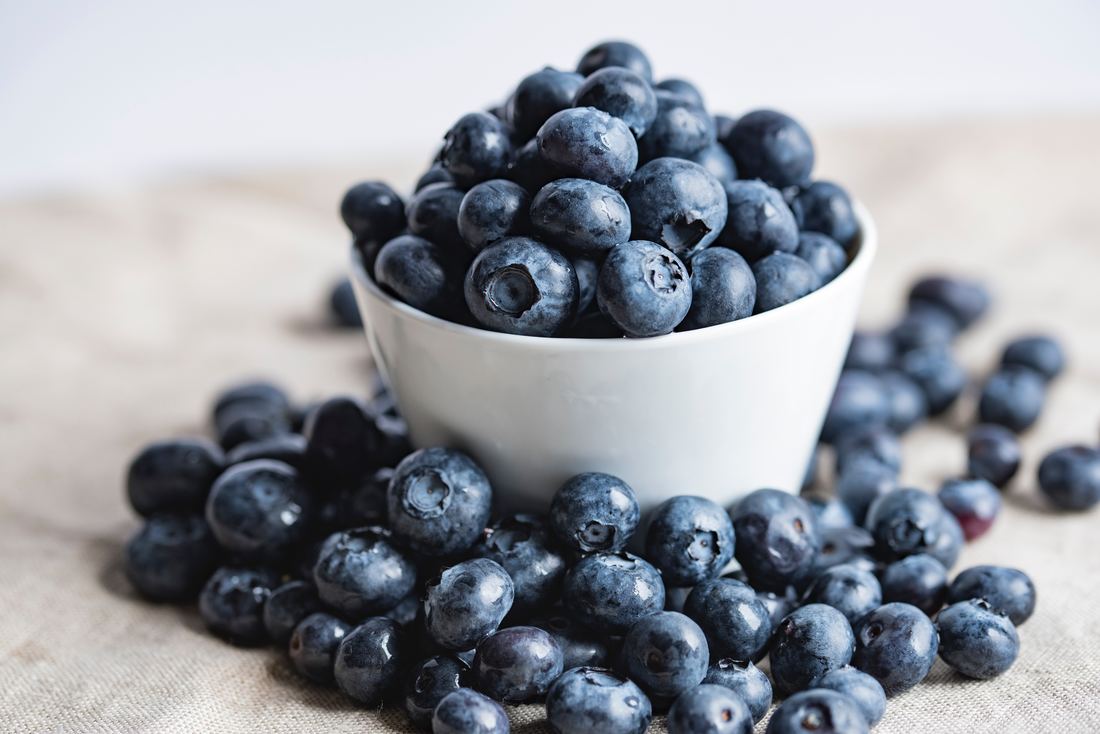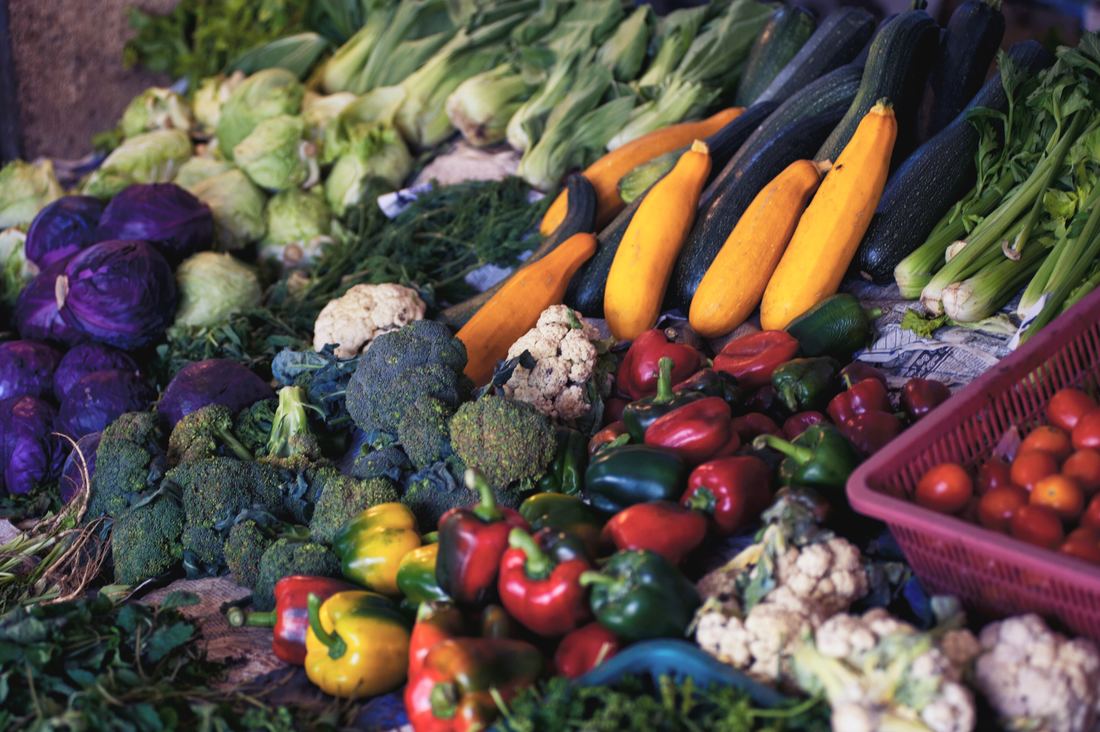Nutrition
Cancer and its treatments may cause unpleasant and negative side effects, i.e., malnutrition, anorexia or cachexia (wasting of the body and weakness). It is important to maintain healthy eating and nutritional habits while undergoing treatment for cancer. A registered dietitian is a vital component of your healthcare team, and, like your psychological health, should not be ignored.
According to the Academy of Nutrition and Dietetics (2018, eatright.org), a registered dietitian nutritionist is a food and nutrition expert who has met academic and professional requirements. A registered dietitian must have:
- Earned a bachelor's degree with course work approved by the Academy of Nutrition and Dietetics' Accreditation Council for Education in Nutrition and Dietetics (ACEND). This coursework typically includes food and nutrition sciences, foodservice systems management, business, economics, computer science, sociology, biochemistry, physiology, microbiology and chemistry.
- Completed an accredited, supervised practice program at a health care facility, community agency or foodservice corporation.
- Passed a national examination administered by the Commission on Dietetic Registration, and
- Agree to complete continuing professional educational requirements to maintain registration on an ongoing basis.
Download dietary and nutritional information regarding cancer.
The following information is provided to help you educate yourself about Fruits, Vegetables, Vitamins and Minerals.
It is not a substitute for the suggestions and counsel of a professional nutritionist.
It is not a substitute for the suggestions and counsel of a professional nutritionist.
Fruits & Vegetables
Eating fruits and vegetables makes good nutritional sense! They lower your risk of cancer and heart disease, contain essential vitamins (A & C) and minerals, are high in fiber and low in cholesterol and fat, have fewer calories (than other food groups), and provide fiber as well as different colors, shapes and tastes to food.
Eating fruits and vegetables makes good nutritional sense! They lower your risk of cancer and heart disease, contain essential vitamins (A & C) and minerals, are high in fiber and low in cholesterol and fat, have fewer calories (than other food groups), and provide fiber as well as different colors, shapes and tastes to food.
Fruits
Fruits are loaded with natural vitamins. They are any seed-containing part of a plant and are broken down into categories, as follows:
Fruits are loaded with natural vitamins. They are any seed-containing part of a plant and are broken down into categories, as follows:
- Citrus – grapefruits, lemons, limes, oranges, tangelos, tangerines
- Berries – blackberries, blueberries, cherries, raspberries, strawberries
- Melons – cantaloupe, honeydew, pumpkin, squash, watermelon.
Vegetables
Vegetables give us important nutrients. They can be the leaves, roots, stalks, bulbs and flowers of a plant, and are broken down into categories, such as:
Vegetables give us important nutrients. They can be the leaves, roots, stalks, bulbs and flowers of a plant, and are broken down into categories, such as:
- Green leafy – arugula, chard, all greens, kale, lettuces, parsley, spinach
- Cruciferous – broccoli, Brussels sprouts, cabbage, cauliflower, kohlrabi
- Allium – chives, garlic, leeks, onions, scallions, shallots
- Non-starchy root – beets, carrots, parsnips, radishes, turnips.
** If you are undergoing cancer treatment, check with your healthcare professional before taking
any vitamin supplements. Certain doses of vitamins may interfere with your treatment.
any vitamin supplements. Certain doses of vitamins may interfere with your treatment.
Vitamins
Vitamin A (Retinol, Carotene) aids night vision, immune response and the growth and repair of body tissue. It can be found in eggs, dark green and yellow fruits and vegetables, and low-fat dairy products.
Vitamin B1 (Thiamin) helps nerve function, metabolizes carbohydrates, and aids growth and muscle tone. B1 can be found in dried beans, whole/enriched grains, wheat germ, pork.
Vitamin B2 (Riboflavin) is needed for cell respiration, and carbohydrate, fat and protein metabolism. B2 can be found in eggs, fish, whole/enriched grains, low-fat milk products, meat, poultry, and green leafy vegetables.
Vitamin B6 (Pyridoxine) helps form red blood cells and antibodies, helps nerve function and carbohydrate and protein metabolism. B6 can be found in fish, whole grains, lean meat, potatoes and poultry.
Vitamin B12 (Cobalamin) aids in blood cell formation, maintains the nervous system and metabolizes carbohydrates, fats and proteins. B12 can be found in eggs, fish, lean meat, non-fat milk and poultry.
Biotin helps fatty acid formation, B vitamin utilization and carbohydrate, fat and protein metabolism. Biotin can be found in cereals, egg yolk, and dark green vegetables, and can be made by microorganisms in the intestinal tract.
Folate (Folic Acid) helps red blood cells form, grow, divide, and protein metabolize. It can be found in dried beans, broccoli, fortified cereals, nuts, oranges, and green leafy vegetables.
Niacin aids the health of the digestive system, blood circulation, nerve function, and carbohydrate, fat and protein metabolism. Niacin can be found in dried beans and peas, fish, whole/enriched grains, and poultry.
Pantothenic acid converts nutrients into energy, and aids vitamin utilization and nerve function. Pantothenic acid can be found in whole grains, legumes and lean meats.
Vitamin C (Ascorbic acid) aids wound healing and immune response, enhances iron absorption (preventing iron-deficiency anemia), facilitates the use of calcium for building bones and blood vessels, reduces symptoms of allergy and asthma, prevents cataracts, and aids in the formation of liver bile. Vitamin C can be found in berries, broccoli, citrus fruits, melons, green and red peppers, and tomatoes.
Vitamin D (Cholecalciferol) aids in the formation of bones and teeth. Vitamin D can be found in egg yolk, fatty fish, fortified milk and is also made in our skin when exposed to sunlight.
Vitamin E (Tocopherol) protects cell membranes and red blood cells from oxidation. It can be found in whole grains, nuts, vegetable oil, dark green vegetables, and wheat germ.
Vitamin K helps the formation of bone and blood clotting agents and can be found in cereal, egg yolk, and green leafy vegetables.
Vitamin A (Retinol, Carotene) aids night vision, immune response and the growth and repair of body tissue. It can be found in eggs, dark green and yellow fruits and vegetables, and low-fat dairy products.
Vitamin B1 (Thiamin) helps nerve function, metabolizes carbohydrates, and aids growth and muscle tone. B1 can be found in dried beans, whole/enriched grains, wheat germ, pork.
Vitamin B2 (Riboflavin) is needed for cell respiration, and carbohydrate, fat and protein metabolism. B2 can be found in eggs, fish, whole/enriched grains, low-fat milk products, meat, poultry, and green leafy vegetables.
Vitamin B6 (Pyridoxine) helps form red blood cells and antibodies, helps nerve function and carbohydrate and protein metabolism. B6 can be found in fish, whole grains, lean meat, potatoes and poultry.
Vitamin B12 (Cobalamin) aids in blood cell formation, maintains the nervous system and metabolizes carbohydrates, fats and proteins. B12 can be found in eggs, fish, lean meat, non-fat milk and poultry.
Biotin helps fatty acid formation, B vitamin utilization and carbohydrate, fat and protein metabolism. Biotin can be found in cereals, egg yolk, and dark green vegetables, and can be made by microorganisms in the intestinal tract.
Folate (Folic Acid) helps red blood cells form, grow, divide, and protein metabolize. It can be found in dried beans, broccoli, fortified cereals, nuts, oranges, and green leafy vegetables.
Niacin aids the health of the digestive system, blood circulation, nerve function, and carbohydrate, fat and protein metabolism. Niacin can be found in dried beans and peas, fish, whole/enriched grains, and poultry.
Pantothenic acid converts nutrients into energy, and aids vitamin utilization and nerve function. Pantothenic acid can be found in whole grains, legumes and lean meats.
Vitamin C (Ascorbic acid) aids wound healing and immune response, enhances iron absorption (preventing iron-deficiency anemia), facilitates the use of calcium for building bones and blood vessels, reduces symptoms of allergy and asthma, prevents cataracts, and aids in the formation of liver bile. Vitamin C can be found in berries, broccoli, citrus fruits, melons, green and red peppers, and tomatoes.
Vitamin D (Cholecalciferol) aids in the formation of bones and teeth. Vitamin D can be found in egg yolk, fatty fish, fortified milk and is also made in our skin when exposed to sunlight.
Vitamin E (Tocopherol) protects cell membranes and red blood cells from oxidation. It can be found in whole grains, nuts, vegetable oil, dark green vegetables, and wheat germ.
Vitamin K helps the formation of bone and blood clotting agents and can be found in cereal, egg yolk, and green leafy vegetables.
** If you are undergoing treatment for cancer,
check with your healthcare professional before taking any mineral supplements.
Certain doses of minerals may interfere with your treatment.
check with your healthcare professional before taking any mineral supplements.
Certain doses of minerals may interfere with your treatment.
Minerals
Calcium supports bone, teeth and muscle tissue, regulates heartbeat, muscle action, nerve function and blood clotting. Calcium can be found in salmon with bones, calcium fortified orange juice and bread, and low-fat or nonfat milk products.
Chromium is needed for energy, increasing insulin effectiveness, and for muscle function. Chromium can be found in beans, cheese, whole grains, peas, and meat.
Copper is needed for bone health and red blood cell and pigment formation. Copper can be found in dried beans, nuts, oysters, and cocoa powder.
Iodine is important for the healthy function of the thyroid gland, which controls metabolism. Iodine can be found in iodized salt and seafood.
Iron formulates hemoglobin in blood and myoglobin in muscle (getting oxygen to cells). Iron can be found in beans, fish, whole/enriched/fortified grains, meat, poultry, and green leafy vegetables.
Magnesium aids enzyme activation, nerve and muscle function, and bone growth. Magnesium can be found in dried beans, whole grains, nuts and green vegetables.
Manganese aids sex hormone production, cell function, and bone growth and development. Manganese can be found in fruits, whole grains, nuts and vegetables.
Phosphorus aids bone development and helps utilize carbohydrates, fats and proteins. It can be found in beans, eggs, fish, whole grains, meat, poultry and low-fat milk products.
Potassium helps control heart muscle activity, and aids nervous system and fluid balance. Potassium can be found in beans, bran cereal, fruits, low-fat milk products, and vegetables.
Selenium helps to fight oxidation damage. Selenium can be found in chicken, eggs, garlic, grains, lean meat, and seafood.
Zinc helps to regulate metabolism, aids in healing and effects taste and smell sensitivity. Zinc can be found in eggs, whole grains, lean meat, low-fat milk products, and seafood.
Calcium supports bone, teeth and muscle tissue, regulates heartbeat, muscle action, nerve function and blood clotting. Calcium can be found in salmon with bones, calcium fortified orange juice and bread, and low-fat or nonfat milk products.
Chromium is needed for energy, increasing insulin effectiveness, and for muscle function. Chromium can be found in beans, cheese, whole grains, peas, and meat.
Copper is needed for bone health and red blood cell and pigment formation. Copper can be found in dried beans, nuts, oysters, and cocoa powder.
Iodine is important for the healthy function of the thyroid gland, which controls metabolism. Iodine can be found in iodized salt and seafood.
Iron formulates hemoglobin in blood and myoglobin in muscle (getting oxygen to cells). Iron can be found in beans, fish, whole/enriched/fortified grains, meat, poultry, and green leafy vegetables.
Magnesium aids enzyme activation, nerve and muscle function, and bone growth. Magnesium can be found in dried beans, whole grains, nuts and green vegetables.
Manganese aids sex hormone production, cell function, and bone growth and development. Manganese can be found in fruits, whole grains, nuts and vegetables.
Phosphorus aids bone development and helps utilize carbohydrates, fats and proteins. It can be found in beans, eggs, fish, whole grains, meat, poultry and low-fat milk products.
Potassium helps control heart muscle activity, and aids nervous system and fluid balance. Potassium can be found in beans, bran cereal, fruits, low-fat milk products, and vegetables.
Selenium helps to fight oxidation damage. Selenium can be found in chicken, eggs, garlic, grains, lean meat, and seafood.
Zinc helps to regulate metabolism, aids in healing and effects taste and smell sensitivity. Zinc can be found in eggs, whole grains, lean meat, low-fat milk products, and seafood.
"Your diet is a bank account. Good food choices are good investments." - Bethenny Frankel
For an appointment, please call or text: (561) 529-4488
Office: 7711 N. Military Trail, Suite 216, Palm Beach Gardens, FL
Office: 7711 N. Military Trail, Suite 216, Palm Beach Gardens, FL

Disclaimer: If this information and format look familiar, it is because it is being used without my permission on another website. This information was originally created and featured by me to establish my non-profit organization, Taking The Fear Out Of Cancer, which was formed to help people take the fear out of a cancer diagnosis through the dissemination of researched information and knowledge, up-to-date links, and the distribution of cancer-information newsletters.
© TakingTheFearOutOfCancerCounseling.com
2018 - 2025
All rights reserved worldwide.
2018 - 2025
All rights reserved worldwide.



















